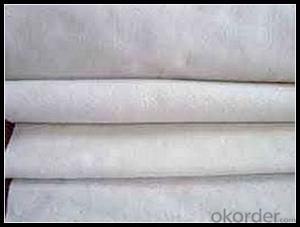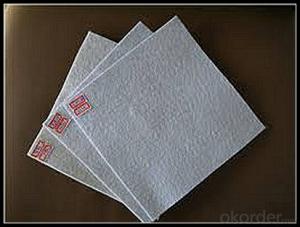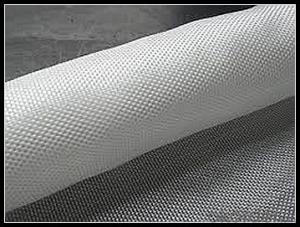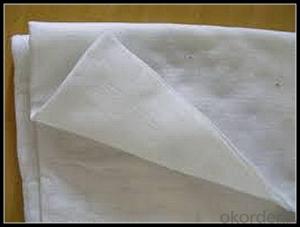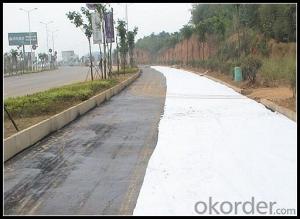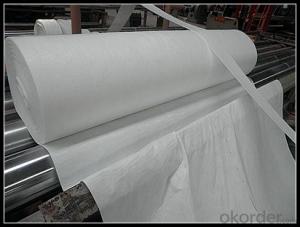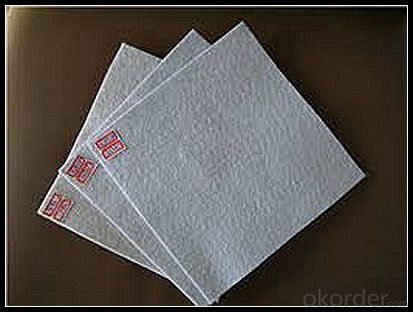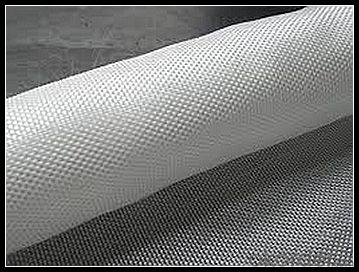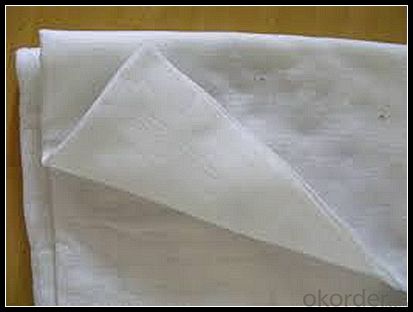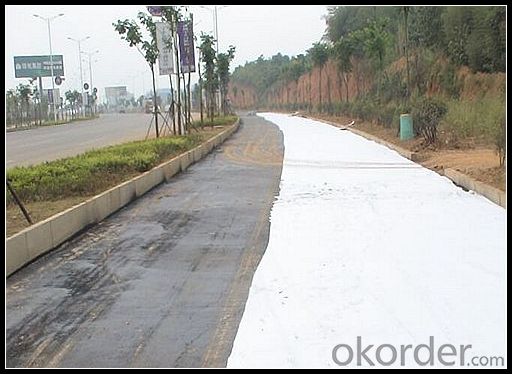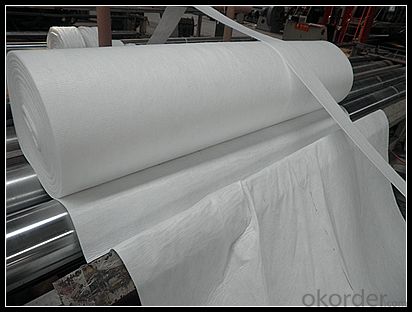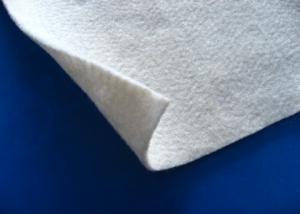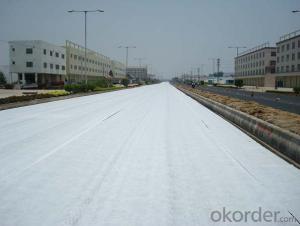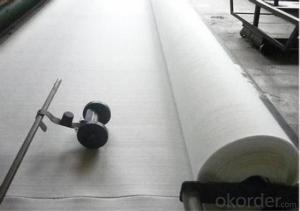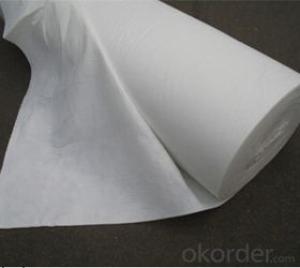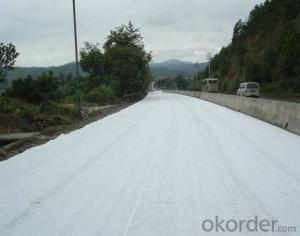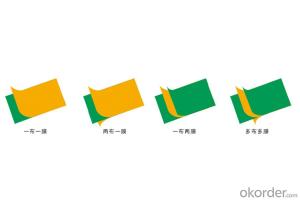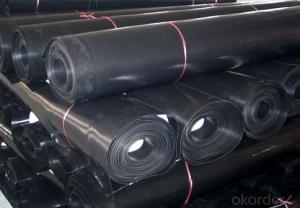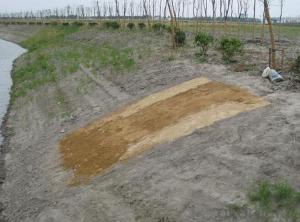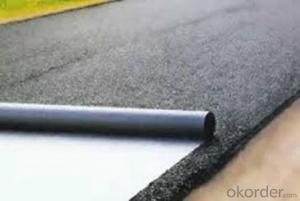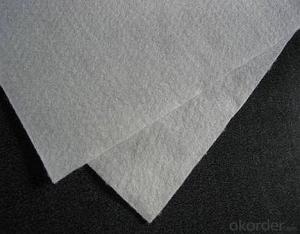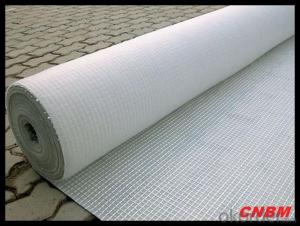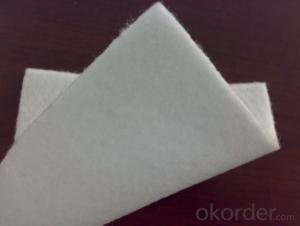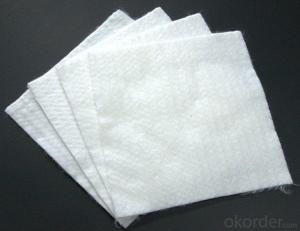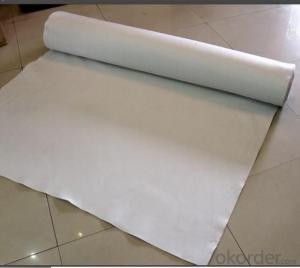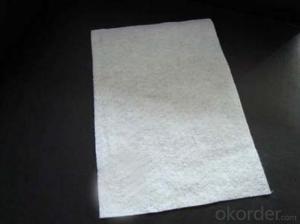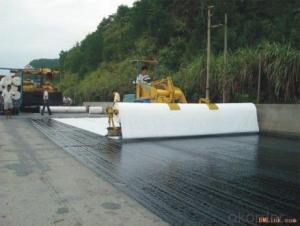Bgt100 Geotextile - High Quality Road Construction Geotextile Felt Fabric
- Loading Port:
- China main port
- Payment Terms:
- TT OR LC
- Min Order Qty:
- 1000 m²
- Supply Capability:
- 1000000 m²/month
OKorder Service Pledge
OKorder Financial Service
You Might Also Like
Specification
Product Introduction
The characteristics for the geosynthetic fabrics
high tensile strength
low elongation
a smooth face surface
proper drainage requirements for the installation, meaning high flow or low flow, permeable or impermeable.
Environmentally Responsible - Panels 100% Recyclable
We supply geotextile to all sites where gabions are used. Depending on the required structure of the gabion, we normally find that about 1-2m2 of geotextile per m3 of gabion is required
Applications
Filtration
gabions and river mattresses
roads
concrete retaining walls.
Separation
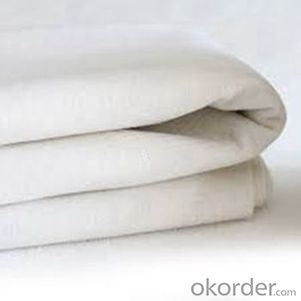 geotextile fabric
geotextile fabric
permeability,filtration,easy for construction
ISO and CE certificate
Good quality and competitive price
Our Service
Quality assurance
1.On a regular basis or as per your request,we entrust national testing agencies to conduct quality inspections
2. Strictly in accordance with the ISO9001-2008 international quality system standard,we monitor and manage the whole process throughout production,quality testing,and measurement to ensure product quality
3. For quality-related construction delay or substandard construction(except for damage or losses due to customer’s responsibility or irresistible natural disasters),we have refunding,replacement,and repair services.We will respond to customers’ feedbacks on quality issues within 24 hours.
Packaging & Shipping
Packing: PLASTIC FILM INSIDE, AND WOVEN BAG OUTSIDE
Shipping: About 15 days after receipt the deposit
FAQ:
Q: What kind of payments does jenor support?
A: T/T, L/C, Cash are accepted.
Q: Do you charge for the samples?
A: Accordeing to our company policy, the samples are free, we only charge the freight fee. And we will return the freight fee during the next order.
Q: Can you produce according to customers' design?
A: Sure, we are professional manufacturer, OEM and ODM are both welcome.
Q: Do you have other products?
A: Yes, please check the pictures:
- Q: Are geotextiles commonly used in civil engineering projects?
- Yes, geotextiles are commonly used in civil engineering projects. They are versatile materials that are used for various purposes such as erosion control, soil stabilization, filtration, and drainage. Geotextiles provide reinforcement and protection to structures, enhance the performance of soils, and help in the construction and maintenance of infrastructure projects like roads, railways, embankments, and retaining walls.
- Q: How do geotextiles help with filtration in stormwater management?
- Geotextiles play a crucial role in stormwater management by providing filtration and erosion control. They act as a barrier, allowing water to pass through while capturing sediment and pollutants. This helps to improve water quality and prevent contamination of natural water bodies. Additionally, geotextiles can enhance the performance of stormwater systems by reducing clogging and promoting efficient drainage.
- Q: In the river within the construction of flexible piping can use geotextile to do anti-floating measures
- Yes, I am specialized in producing the installation
- Q: What is the expected lifespan of geotextiles?
- The expected lifespan of geotextiles can vary depending on factors such as the quality of the material, the specific application, and the environmental conditions. However, on average, geotextiles are designed to have a lifespan of 20-30 years.
- Q: How do geotextiles affect soil consolidation?
- Geotextiles can positively affect soil consolidation by providing reinforcement and stabilization to the soil. They distribute the load more evenly, reducing the settlement and improving the overall strength and stability of the soil. Additionally, geotextiles can prevent erosion and control the movement of soil particles, further enhancing soil consolidation.
- Q: What are the different geotextile installation techniques for erosion control blankets?
- There are several geotextile installation techniques for erosion control blankets, including anchoring, trenching, and stapling. Anchoring involves securing the blanket with stakes or pins to prevent movement. Trenching involves digging a trench along the edges of the blanket and burying it to provide additional stability. Stapling involves using landscape staples or metal pins to fasten the blanket to the ground. Each technique is used based on the specific site conditions and requirements.
- Q: Can geotextiles be used in erosion control in agricultural fields?
- Yes, geotextiles can be used in erosion control in agricultural fields. Geotextiles provide a barrier that helps prevent soil erosion by stabilizing the soil and reducing water runoff. They can be used in various erosion control applications such as slope stabilization, sediment control, and erosion prevention on agricultural fields.
- Q: How do geotextiles help with erosion control in coastal dunes?
- Geotextiles help with erosion control in coastal dunes by providing a protective barrier against wind and water erosion. They are placed on the dune surface to stabilize the sand, preventing it from being washed away or blown by strong coastal winds. The geotextiles allow water to pass through while retaining the sand, thereby reducing erosion and maintaining the integrity of the dune system.
- Q: What are the specifications for geotextiles in retaining wall construction?
- The specifications for geotextiles in retaining wall construction typically include requirements such as the tensile strength, elongation, permeability, and durability of the material. The geotextiles should have sufficient strength to resist the forces exerted by the retained soil, as well as the ability to allow water to drain through the fabric. Additionally, they should be resistant to degradation from UV exposure, chemicals, and biological agents to ensure long-term performance in retaining wall applications.
- Q: Can geotextiles be used in coastal protection projects?
- Yes, geotextiles can be used in coastal protection projects. Geotextiles are materials that are designed to be placed in the ground or water and provide soil stabilization and erosion control. In coastal areas, they can be used to prevent erosion of beaches or dunes by acting as a barrier against wave energy and preventing sediment loss. Geotextiles can also be employed in the construction of revetments, breakwaters, or other coastal structures to enhance their stability and longevity.
Send your message to us
Bgt100 Geotextile - High Quality Road Construction Geotextile Felt Fabric
- Loading Port:
- China main port
- Payment Terms:
- TT OR LC
- Min Order Qty:
- 1000 m²
- Supply Capability:
- 1000000 m²/month
OKorder Service Pledge
OKorder Financial Service
Similar products
Hot products
Hot Searches
Related keywords
